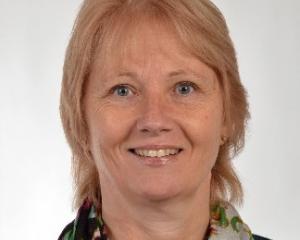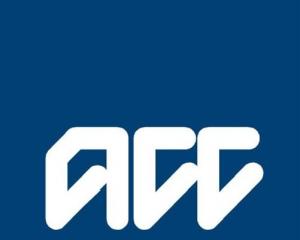
"I am concerned ACC has been running its business so badly it has to come back and give the Government no option but to address the incompetency . . . How could it get in such a state they have to fund it through a cost-plus mentality?" he said.
Given the financial circumstances of many, businesses represented by the chamber would not appreciate rising costs, he said.
However, it would be good to get a clear perspective of how bad things were, he said. The chamber and its members had been waiting for that.
Business New Zealand economist John Pask said from Wellington he expected two major issues affecting the future of ACC entitlements to be addressed when the Government made its announcement today.
The first was the number of people going into the scheme.
The second was the length of the claim, or how long people would stay on ACC-funded treatment.
Whether some treatments should be funded by ACC could also be discussed, Mr Pask said.
Prime Minister John Key earlier said the Government would announce plans to cut ACC entitlements, so it could keep levy rises to politically acceptable levels.
ACC levies might have to rise by at least 10%, and as much as 50%.
Former Labour finance minister David Caygill is undertaking a stocktake of ACC.
His report should be available by the middle of next year.
The Bill expected to be introduced into Parliament tomorrow was thought to contain short-term measures to stop the gaps.
Claims from 1999 were fully funded, but the old liabilities needed addressing, Mr Pask said.
Mr Key had indicated legislation changes would include pushing back the date for when the scheme had enough money to cover all its future costs from 2014-19.
Apart from a surcharge being added to physiotherapy costs, Mr Pask believed the extensions to the scheme, which included "gold-plated hearing aids", could be changed.
"With an ageing population, hearing loss could be workplace related, or it could be age-induced hearing loss," Mr Pask said.
ACC had pointed to its low administration costs, but Mr Pask was critical of how much monitoring the corporation undertook.
"If you don't do any monitoring you can basically keep your costs down," he said.
Green Party MP Sue Bradford said the Government was deliberately undermining ACC to soften it up for partial privatisation.
"It is no accident that National is manufacturing a crisis with ACC. This is a conscious ploy to undermine ACC's reputation, to allow the Government to push for creeping privatisation," she said.
Mr Pask said contesting for ACC work was an issue for the future, as was rewarding employers who had a good accident record.
Employers in the same industry could have very different accident records, and it could be hard to differentiate, he said.
No-one wanted cost increases, but there could be cases where cost increases were justified, Mr Pask said.
Changes could also be made to the motor vehicle account, he said.
Currently, motorcyclists paid very little in levies, considering their accident rates, and cyclists paid nothing at all.
The motor vehicle account levies could rise by 50% and the earners account levies could also rise substantially.
The work account was about 95% funded, Mr Pask said.
Green co-leader Russel Norman said that contrary to the impression being deliberately given by the Government and ACC chair John Judge, ACC was not losing money.
This year its revenue was about $4.5 billion, which was $1.5 billion more than it spent on claims.
National was deliberately creating an atmosphere of crisis and confusion as an excuse to cut entitlements and move toward partial privatisation, Dr Norman said.
Business New Zealand chief executive Phil O'Reilly said ACC needed to be steered back towards its original mission of injury prevention and rehabilitation.
In recent years, ACC's definition of "injury" had become increasingly extended.
Many conditions that should have been paid for by the health system had ended up being paid for by ACC, Mr O'Reilly said.





